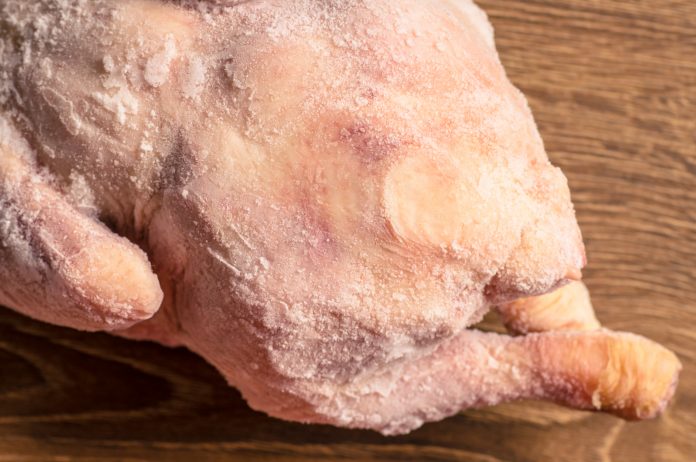WASHINGTON — A study from the U.S. Department of Agriculture reveals that individuals are putting themselves at risk of illness when they wash or rinse raw poultry.
The results of the observational study showed how easy bacteria can be spread when surfaces are not effectively cleaned and sanitized.
The USDA recommends three options to help prevent illness when preparing poultry or meat.
Prepare vegetables first
Significantly decrease risk by preparing foods that will not be cooked, such as vegetables and salads, before handling and preparing raw meat and poultry.
Of the participants who washed their raw poultry, 60% had bacteria in their sink after washing or rinsing the poultry. Fourteen percent still had bacteria in their sinks after they attempted to clean the sink.
Twenty-six percent of participants that washed raw poultry transferred bacteria from that raw poultry to their ready-to-eat salad lettuce.
Wash up
Thoroughly clean and sanitize any surface that has potentially touched or been contaminated from raw meat and poultry, or their juices.
Of the participants that did not wash their raw poultry, 31% still managed to get bacteria from the raw poultry onto their salad lettuce.
This high rate of cross-contamination was likely due to a lack of effective handwashing and contamination of the sink and utensils.
Clean sinks and countertops with hot soapy water and then apply a sanitizer.
Wash hands immediately after handling raw meat and poultry. Wet hands with water, lather with soap and then scrub for 20 seconds.
Cook to temp
Destroy any illness-causing bacteria by cooking meat and poultry to a safe internal temperature as measured by a food thermometer.
Beef, pork, lamb and veal are safe to eat at 145 degrees Fahrenheit. Ground meats are safe to eat at 160 degrees Fahrenheit. Poultry is safe to eat at 165 degrees Fahrenheit.
Washing, rinsing or brining meat and poultry in salt water, vinegar or lemon juice does not destroy bacteria.
Washing or rinsing raw meat and poultry can increase risk as bacteria spreads around the kitchen, but not washing hands for 20 seconds immediately after handling those raw foods is just as dangerous.
The U.S. Centers for Disease Control and Prevention estimates that millions of Americans are sickened with foodborne illnesses each year, resulting in roughly 128,000 hospitalizations and 3,000 deaths.
Children, older adults and those with compromised immune systems are especially at risk.














